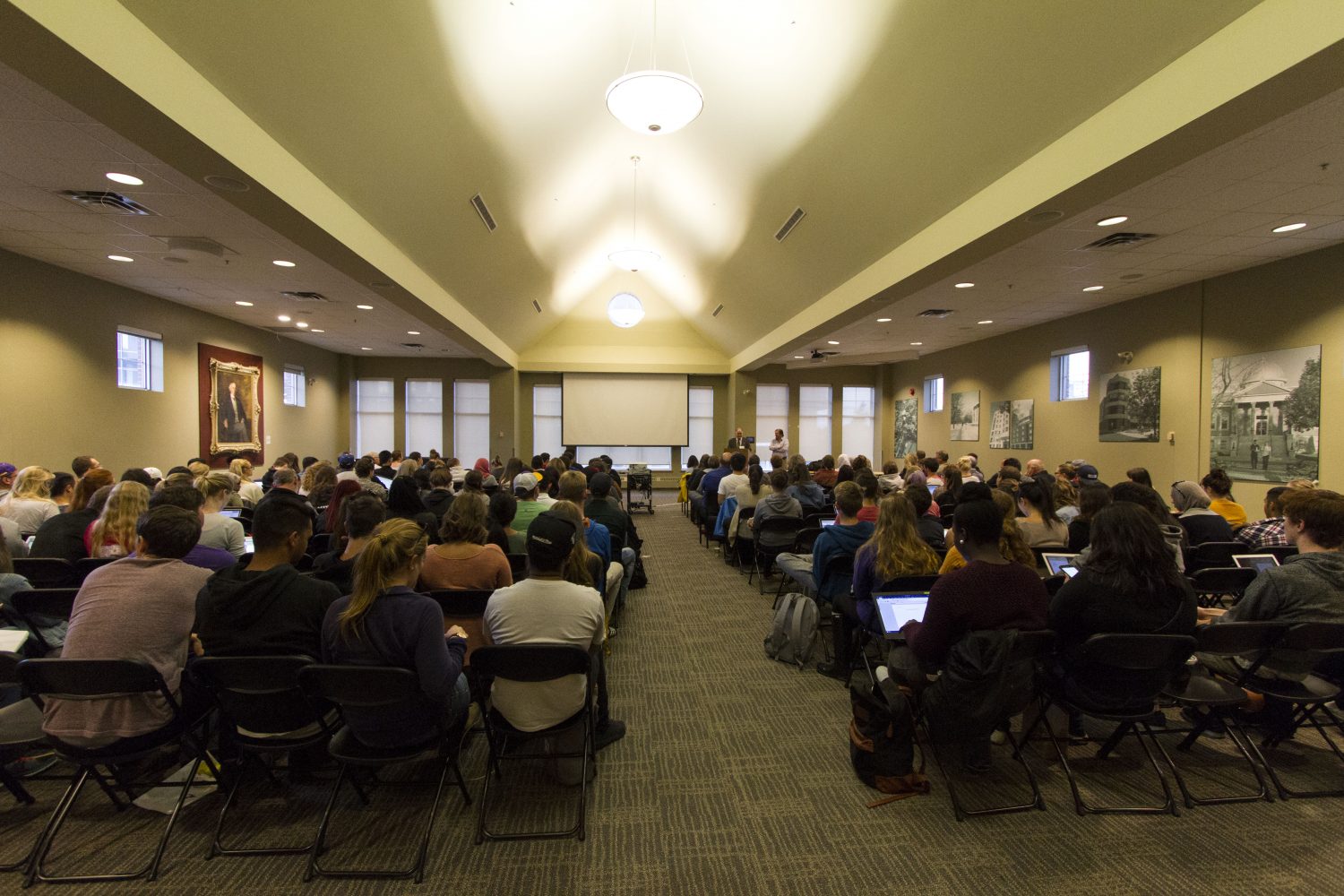Gwynne Dyer talks climate change at Laurier


Wilfrid Laurier University had the opportunity to host Canadian journalist Gwynne Dyer as he spoke about climate change on September 26. His lecture, based on his new book Climate Wars, revealed his findings from a global two-year tour interviewing scientists, generals, think tanks, diplomats and politicians. Dyer is a freelance journalist, historian, author, columnist, broadcaster, filmmaker, Academy Award nominee and Gemini Award winner. He also writes a twice-weekly column on public affairs that is published by over 175 papers in 45 countries. Dyer completed degrees from Canadian, American and British universities, eventually earning a Ph.D. in military and Middle Eastern history.
His talk in the Senate and Board Chambers on the Waterloo campus emphasized the role of the military in a warming world. He talked about personal concerns for the human race as global warming accelerates.
During his research, he asked scientists from around the world “How big is this [climate change]? And how fast is it happening?” he answered:“It is bigger and coming faster that you can read in the press.”
The problem with predicting the severity and speed of a warming world is that the data published by scientists is outdated by the time it reaches the public.
“The IPCC (Intergovernmental Panel on Climate Change) are undershooting the reality in their reports,” said Dyer. “It takes one to 18 months before scientific articles are published and the data gathered for those articles took years before that…the latest IPCC report contains nothing less than five years old”.
Going into the 15th consecutive month that broke record high temperatures, there is a panic underway. “I know a lot of afraid scientists,” said Dyer.
Increased temperatures will result in devastating consequences.
“We’re not trying to save the planet. The planet managed fine before us and will continue to exist after us,” said Dyer. “We’re here trying to save the human race.”
One study Dyer helped conduct predicted that with a global rise in temperature of two degrees, India could lose 25 per cent of its food production and China could lose 30 per cent. At six degrees higher, most of the planet will be open desert, with the remaining fertile land only being able to feed about half a billion people. Dyer emphasized that even the pentagon is preparing for a warming world. With increased temperatures and decreased agricultural production, the military sees a hungry world and a failing international community which will destroy the cooperation needed to survive.
“There will be lots of employment [for the military] in a warming world,” he said.
Despite the crisis, Dyer anticipates in the decades to come, he left the audience with a touch of hope in one word: geoengineering.
If worst comes to absolute worst, scientists are working on a technique that involves dumping sulfur dioxide into the stratosphere to help cool the planet, but this is not a solution. It is a last attempt to save the planet, if all else fails, and if this technique fails, “we will all be royally screwed,” he said.
The goal is not to create a solution to stop the world from warming while we continue to emit fossil fuels at the same rates as today, the goal is to get countries to make large emission cuts in the next decade and provide developing countries with sustainable sources of energy. The world needs to make a deal and commit to saving the planet.
“We won’t get a deal until Western publics understand the history and the severity,” Dyer said.
Dyer emphasized that it is the responsibility of the upcoming generations to take the reigns, strive for sustainability and decrease carbon emissions before it is too late.


